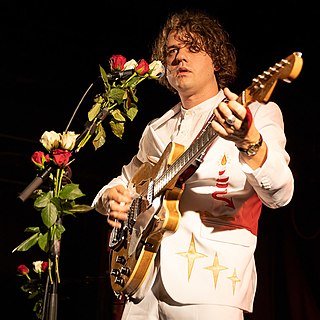A Quote by Frederick Lenz
We have to remind ourselves that we are not the transitory body, we are not the person who is having experiences, we are not affected by action or inaction.
Quote Topics
Related Quotes
If you are having the experience of anxiety, your body is making adrenaline and cortisone, if you are having the experience of tranquility, your body starts making valium, if you are having the experience of exhilaration and joy, your body makes interleukins and interferons which are powerful anti-cancer drugs. So, your body is constantly converting your experiences into molecules.
So much of the world's suffering results from the sinful action or inaction of ourselves and others. For example, people look at a famine and wonder where God is, but the world produces enough food for each person to have 3,000 calories a day. It's our own irresponsibility and self-centeredness that prevents people from getting fed.
The 'phenomenal concept' issue is rather different, I think. Here the question is whether there are concepts of experiences that are made available to subjects solely in virtue of their having had those experiences themselves. Is there a way of thinking about seeing something red, say, that you get from having had those experiences, and so isn't available to a blind person?
First, climate change is the greatest long-term threat faced by humanity. It could cause more human and financial suffering than the two world wars and the great depression put together. All countries will be affected, but the poorest countries will be hit hardest. Secondly, the costs of inaction far outweigh the costs of action.
The experience of climbing Kilimanjaro affected me so powerfully that, for a long time afterward, if I caught myself saying, "I'm not a person who likes to do that activity, eat that food, listen to that music," I would automatically go out and do what I imagined I didn't like. Generally I found I was wrong about myself - I liked what I thought I wouldn't like. And even if I didn't like the particular experience, I learned I liked having new experiences.

































